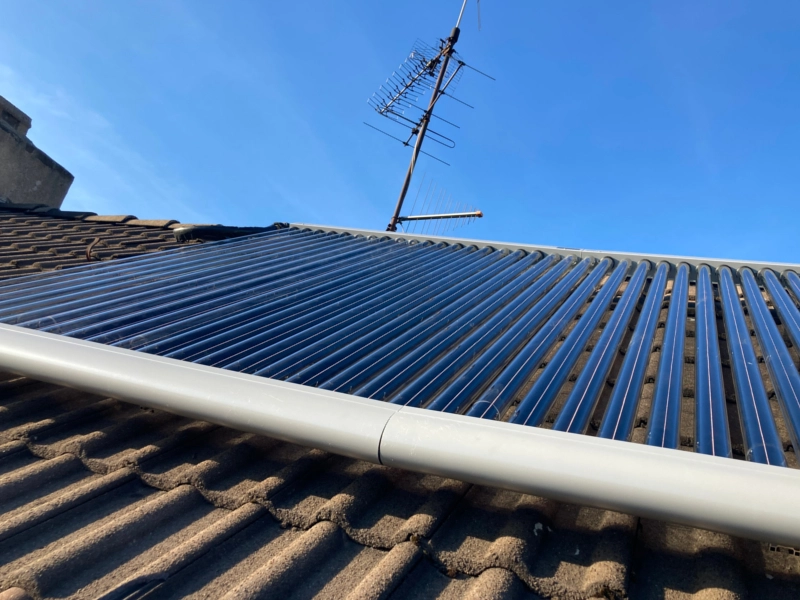-
-
Service & Garantien
Service & Garantien

Imagine no longer having to worry about how harsh the next winter might be, how oil, gas, or electricity prices will develop, or what political decisions might dictate how you heat your home.
It’s possible! With a solar thermal system – a system that generates heat from the sun! This technology has been well-established and refined for decades. It’s easy to implement and compatible with all conventional heating systems, whether oil, gas, heat pumps, or biomass systems. Solar thermal systems can be integrated into existing systems relatively easily and ensure that EVERY time the sun shines, free heat is produced. For a single-family home, you’ll need about 10–15 m² of space – either on the roof or on the façade.
That means you’ll still have space left for PV on the roof. A solar thermal system doesn’t require an inverter or a separate electricity meter that the grid operator can access, nor does it need to be registered anywhere. Once installed, the system belongs entirely to you! The best part: the government subsidizes the retrofitting of an existing heating system with solar thermal technology with at least 30%. Applications can be submitted together with your trusted installer via KfW.
The share of solar heat can be significantly increased in autumn and even winter thanks to minimal heat losses. The overheat-resistant heat pipe tubes used in AKOTEC collectors also allow for smaller and more cost-effective expansion vessels, simplify system safety measures, and reduce thermal stress within the system. In addition, the vacuum tubes are highly durable. In testing, the tubes withstood impact from 40 mm ice balls (golf ball size) shot at 100 km/h. These systems, manufactured entirely in Germany, reliably deliver free heat for at least 25 to 30 years. That’s why we offer a 20-year warranty on our collectors.
Share on
AKOTEC Solar Thermal